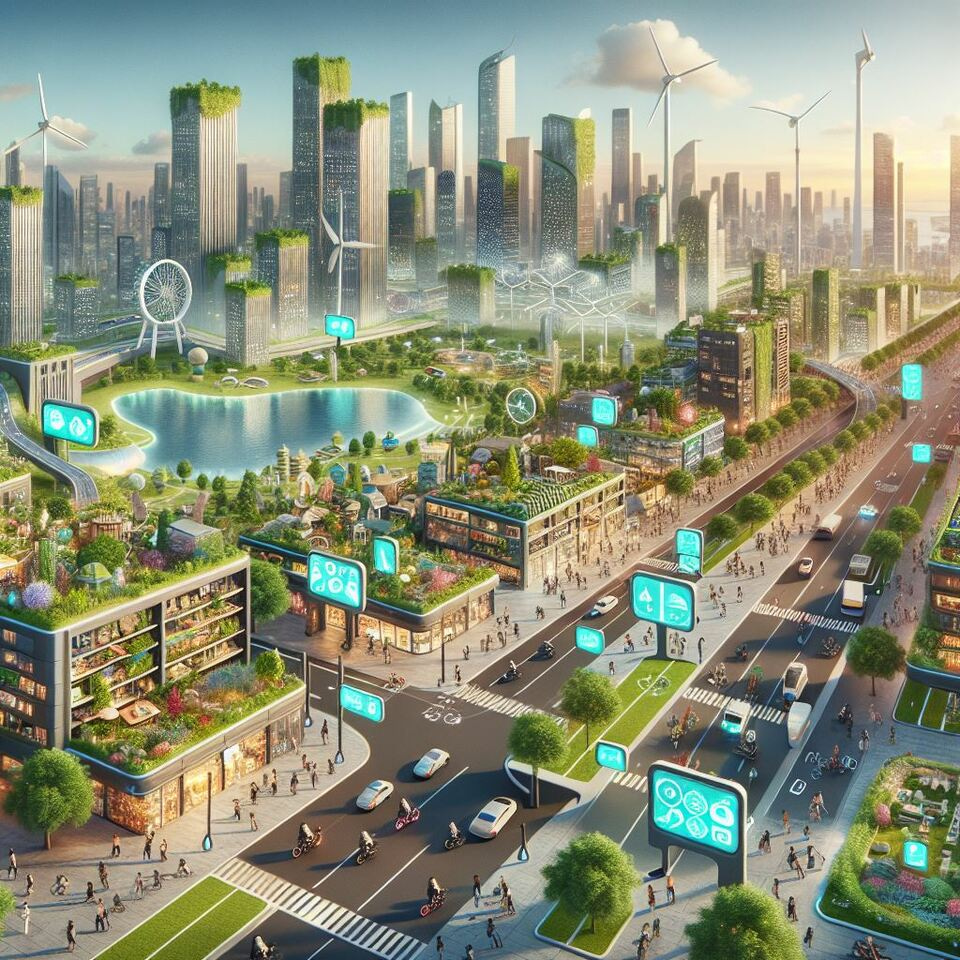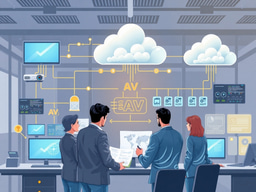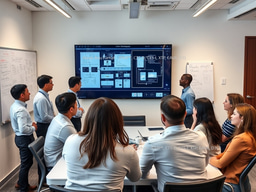LetsTalkAVbyAlexis Series: Episode 6:Designing a Successful Auditorium: Where Acoustics, Technology and Intent Converge


As the world shifts toward more sustainable practices, every industry is rethinking its environmental impact, including the AV industry. AV systems have transformed communication, entertainment and business operations globally, yet they often come with a heavy environmental cost, from high energy consumption to a growing amount of electronic waste.
So, what can we do as AV professionals to make our industry more sustainable?
Here are a few ideas to consider:
Many AV devices consume significant power, especially in 24/7 operations like digital signage, stadiums, airports and conference centers. Innovations in energy efficiency are emerging, such as:
These technologies not only cut costs but also help reduce our industry’s overall carbon footprint.
Rapid advances in AV technology often mean frequent upgrades, leading to a cycle of disposal and replacement. Modular designs can disrupt this cycle by allowing individual components, such as lenses in projectors or amplifiers in sound systems, to be upgraded independently, extending the overall lifespan of AV systems. This approach not only reduces waste but also makes system upgrades more affordable and accessible.
Consider modular projectors, where lenses or lamps are replaceable, or scalable systems designed to grow with an organization’s needs. These options allow for extended use without total replacement.
AV equipment production often relies on materials with a high carbon footprint or involves practices that aren’t environmentally friendly. More companies are:
By prioritizing sustainable materials, AV companies are making strides toward reducing environmental impact, yet there’s still a long way to go.
The AV industry plays a key role in events, which can be resource-intensive. Event professionals can reduce the carbon footprint of AV-supported events by:
Green event practices have been shown to minimize emissions, reduce costs and make event planning more sustainable.
To combat electronic waste, some companies are exploring circular economy models:
This approach enables manufacturers to recover valuable materials, while customers can access high-quality, cost-effective products. It’s a win-win, promoting reuse over disposal.
AV standards and certifications are crucial in promoting sustainable practices. Programs like:
These certifications help AV professionals make more sustainable choices, ensuring that products align with environmental goals and standards.
When transporting AV equipment, packaging can contribute to substantial waste. Many companies are turning to:
Small changes like these can make a big difference, reducing the environmental impact of shipping.
Is the AV Industry Doing Enough?
While there have been great strides in creating energy-efficient devices, modular design and eco-friendly packaging, there’s more the AV industry can do to reduce its environmental impact. The future of AV can be greener, but it requires ongoing innovation and commitment.
Av professionals & AV community Turn: Are we, as an industry, doing enough to promote sustainability? How can we push these efforts further?
I’d love to hear your thoughts! Have you seen any innovative sustainable practices or products in AV lately?
With over 20 years of experience in the AV and ELV industries, I specialize in AV system design, installation, management, and integration across diverse sectors, including corporate, education, sports, healthcare, hospitality, and government. My career began in 2003 with the AV team at a 5-star hotel in Lebanon, where I developed a passion for AV systems.
Technical leadership spans advanced audiovisual ecosystems including digital signage networks, broadcast and media systems, large-format LED environments, video mapping, PAVA and emergency communication systems, intelligent wayfinding, collaboration spaces, lecture theatres, hospitality technologies, and integrated control platforms.
Known for bridging the gap between consultants, architects, operators, and technology vendors to ensure cohesive design delivery and future-ready infrastructure. Strong focus on user experience, operational efficiency, scalability, and reliability across complex facilities.
Certified Project Management Professional (PMP) and AVIXA CTS-D / CTS-I, demonstrating mastery in AV system design, integration, and project governance. Active contributor to the global AV community as an AVIXA Xchange Advocate across the Middle East and GCC.
Industry speaker at the Integrated Systems Europe (ISE) 2023 & 2025 in Barcelona, Infocomm India Sep 2025, representing Qatar and contributing insights on evolving AV technologies, project delivery practices, and knowledge collaboration within the global AV community.
Currently, I am part of BLINQ, a division of IMAR Trading and Contracting in Qatar, where I serve as the ELV Projects Manager, focusing on ELV systems and immersive AV solutions. I am committed to continuous learning, staying ahead of industry trends, and mentoring emerging professionals to elevate the AV field
Xchange Advocates are recognized AV/IT industry thought leaders and influencers. We invite you to connect with them and follow their activity across the community as they offer valuable insights and expertise while advocating for and building awareness of the AV industry.



We and selected partners, use cookies or similar technologies as specified in the cookie policy and privacy policy.
You can consent to the use of such technologies by closing this notice.
Please sign in or register for FREE
If you are a registered user on AVIXA Xchange, please sign in
@Alexis Bou Farhat, CTS-D, CTS-I
I think we are not doing enough yet, but there are very promising examples. Like you, we are promoting initiatives in Latin America to make the AV industry more sustainable, but it seems to be a subject that is not so popular, many businessmen are not yet involved, but we must insist and push so that together we can make a difference.
Thank you for your insights and efforts in Latin America! Raising awareness is key to driving change. What sustainable practices or innovations have you seen locally? Sharing these could inspire more in our global AV community!
Great article! I completely agree with your points about the AV industry’s challenges in sustainability, especially with energy use and e-waste. The push for energy-efficient designs and modular components is a step in the right direction, but as you mentioned, the pace of adoption needs to pick up. It’s refreshing to see this topic getting the attention it deserves—hopefully, more companies will start prioritizing these practices to make a real impact. Thanks for shedding light on this!
4oThanks for your comments !
It's true that many businesses are still not fully engaged. How do you think we can better engage stakeholders in our industry to accelerate change and adoption of sustainable practices?